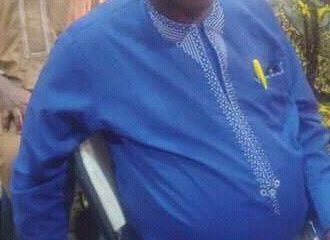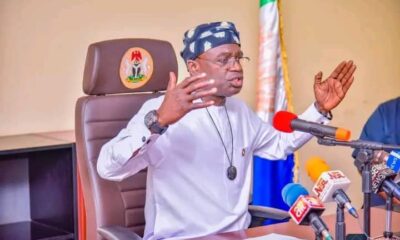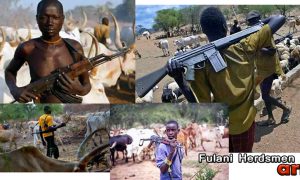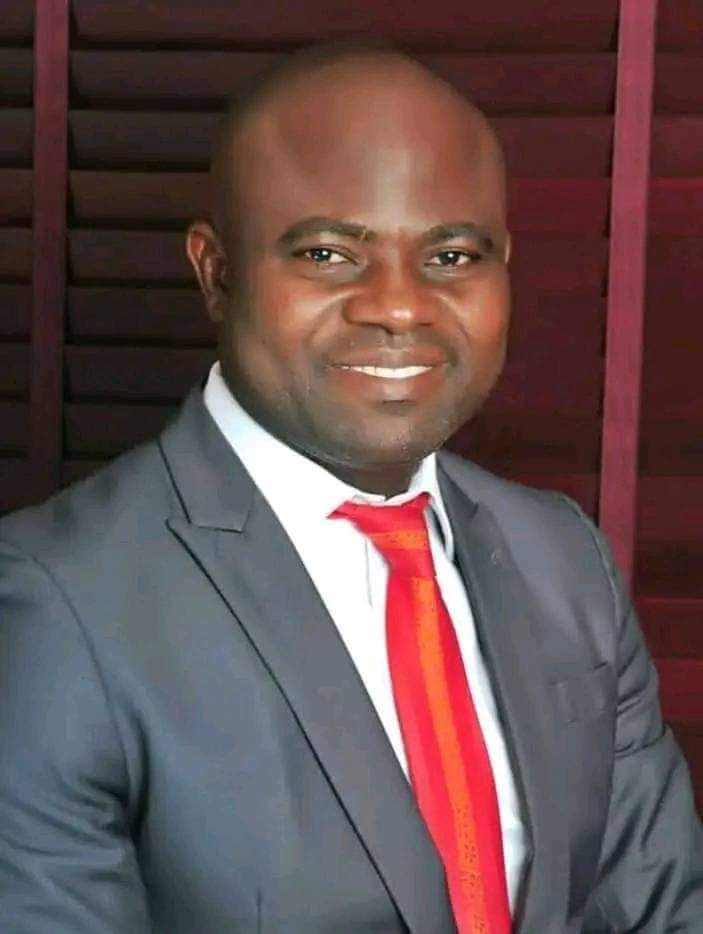idoma music
Otukpa: A visit to ‘Palm City’…a ‘dream’ experience of childhood Idyll
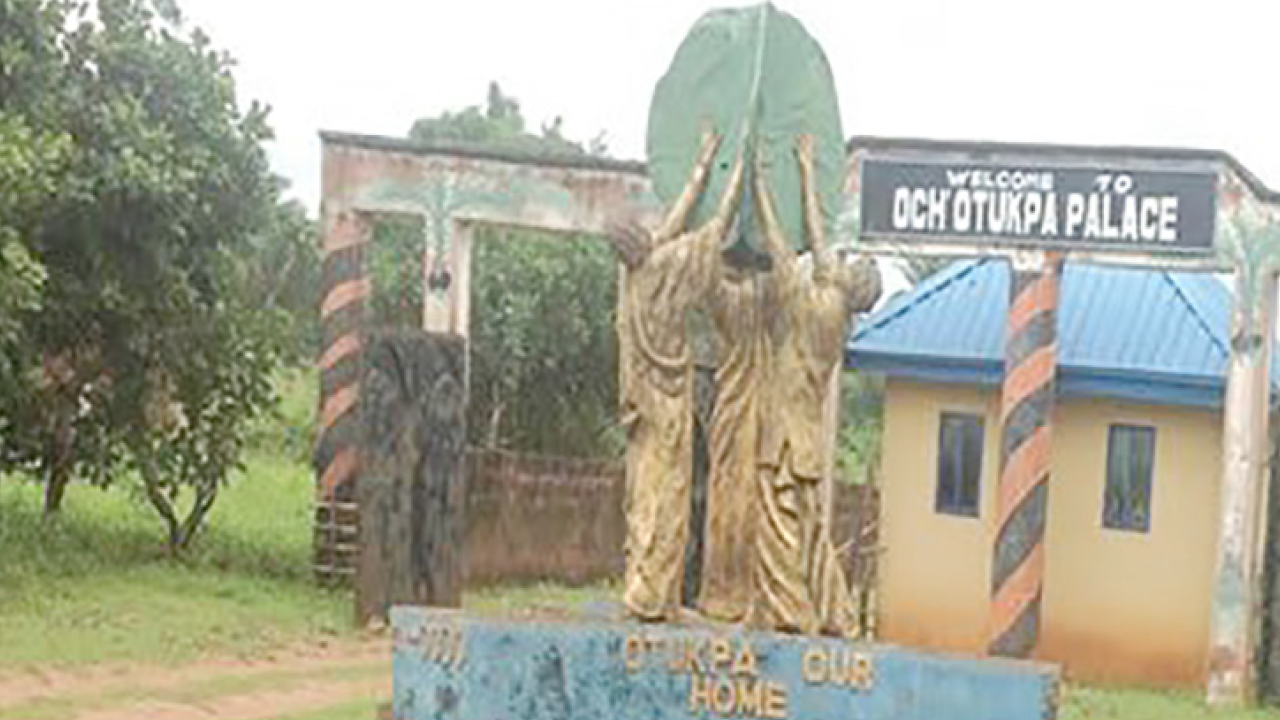
East of the Niger,
South of the Benue,
On the crossroad to East and North
Lies my hometown of Otukpa,
Standing like a bridge
Between two worlds:
It bobbles and burble like a bell
On a string.
By the time I arrived at Otukpa, the southwestern gateway of Benue State and Headquarters of the Idoma-speaking Ogbadibo Local Government Area of Benue State, the fresh breeze from the giant raffia palm trees that dot the town and the home-sweet-home feeling were enough to help me forget the frenzied experience of the five-hour-long journey.
I had taken off from the Federal Capital City of Abuja, some 438 km north of Otukpa, via the Lokoja route. I was seated inside a commercial vehicle at the park some minutes before 12 noon but waited for about two hours for the 18-seater bus to fill to its capacity. The loading of luggage on the vehicle took another 30 minutes with incessant bickering.
We finally took off from the park after a series of melodramas but it wasn’t up to five minutes before the driver branched into a gas station to fill up his tank. It was after the tank-filing that the driver, a middle-aged man, appeared set for the business of the day, driving expertly with the music of the late Idoma gospel folksinger, Evangelist Peter Otulu blasting from his speakers.
But our journey was slow up until we left the city centre when the driver began driving speedily and roughly, violating a few traffic rules―and getting away with them. As we approached the bad portion of the ever-busy Abuja-Lokoja road, our fast-and-furious driver knew where to brake and slow down.
As we progressed on the journey, our progress became slower, because of the state of the road. Our heavy-ladened vehicle was crawling most of the time until we got to the confluence town of Lokoja, the Kogi State Capital, where we enjoyed the luxury of a few meters of motorable road. We also endured some minutes of gridlock in the boisterous town. As we drove on the Niger-Benue confluence bridge, one could see a postcard vision, of canoemen sailing against the dazzling water.
As we stepped down from the bridge, I threw away the empty container of the Eva water I bought in Koton Karfe, the town between Lokoja and Abuja. The water had kept me hydrated as I engaged in a heated discussion with other passengers over a range of issues, mostly politics, sports and some sentimental topics being discussed in the vehicle. The discussion was our escape from the stress of the long, hectic journey.
The debate sparked by the comparison of the Argentine soccer wizard and the Portuguese prodigy, Messi and Ronaldo, by one of the young men in the vehicle, went on endlessly until we got to Itobe bridge, nearly half of our journey. The argument only paused whenever we encountered some “palm-greasing” policemen on the highway, and then restarted thereafter.
The rest of the journey was hectic―mostly due to the bad road. The state of roads here was worse than the Lokoja-Abuja axis. Our discussion shifted to the inept and adamantine Kogi State Government for its failure to provide the citizenry with basic infrastructures, as our assessment of the major towns that flew by us ―Koton Karfe, Lokoja and Ajaokuta, the locale of the popular iron and steel industry―painted a dismal picture of a state highly deficit in infrastructure.
Most of the passengers in the vehicle agreed that despite the road being a Federal Government road, a State Government that has the interest of its citizens at heart could fix it on loan for the Federal Government or at least rehabilitate the potholed portions. There was also knocks for the Federal Government for the perpetual announcements of the awarding of the road for reconstruction and rehabilitation with nothing on ground to show for it. Thereafter, everyone, tired of jaw-jawing, fell silent, some drifted into light slumber and serenity descended on the vehicle. In silence, we bore the discomfort of the bumpy ride as our vehicle with its burden, bumped up and down the road trying to avoid potholes and small craters.
Dusk was preparing to fall when we got to Aloma. Like Itobe, Aloma is a medium-sized Igala town in Kogi State. We were getting closer to our destination – Otukpa! It was here our driver refilled his tank again and some passengers picked sachets water, fruits and snacks from roadside sellers close to the filling station.
As we continued our journey on the asphalt road, the cold, harsh and zingy breeze of harmattan blew into the bus, prompting passengers to close up the windows. Mothers brought out jackets for their children.
Discussions soon resumed in full, soon after and this time, the topic was of a very sentimental issue: the Idoma Governorship agitation in Benue State.
“Since the creation of Benue State, over 45 years now, it has always been the Tiv majority ruling the state. The Idoma who are the second-largest ethnic group in the state has never been given the opportunity to produce the State Governor.” This was the lamentation of a septuagenarian.
The discussion continued with an undercurrent of deep emotions and high-voltage sentiment, with most of the discussants maintaining that it would be against sensibility and fairness for power not to “shift” in 2023 to Benue South, which comprised Idoma and Igede.
After driving for another hour, we were finally welcomed to Otukpa city by its signature palm trees. The time was half-past seven. Nonetheless, it wasn’t until we reached Aloma Junction, Olachagbaha-Otukpa, that I really felt relieved.
Otukpa is a medium-sized town of many crossroads. Inhabitants of the town are descendants of three patriarchs: Onno, father of Ai’onno, who migrated from the royal palace of Attah Igala in Idah, present-day Kogi State; Odoo, father of Ai’Odoo, who was said to have migrated from Idah via Igboland; and Ameh Ochagbaha, father of Olachagbaha, believed to be an aborigine of the land or an early migrant from Imane, also in present-day Kogi State.
Otukpa is made up of six council wards: Ai’onoo ward I, Ai’onoo ward II, Ai’onoo III; Ai’odoo ward I, Ai’odoo ward II, and Olachagbaha ward. According to British historian and colonial District Commissioner of Otukpa, Capt. D.C Money, who was the first to write the history of Otukpa, the name “Otukpa” is a corruption of the Idoma word “Otuba” which means “gather together,” depicting the unity among the patriarchs who came from separate ways but united to establish the town.
The town is famous for its fresh palm wine, just as it is renowned for its dreaded Alekwu – the gods of justice whose omnipresence over the district is palpable.
Otukpa is a microcosm of Nigeria. Among the Idoma and Igede residents in the city, you would find Igala, Igbo and Hausa-speaking populations.
It is watered by the Ogbadibo stream (from which the local government derived its name) and other smaller water bodies.
The town’s population of 200, 000 people are mostly farmers, local government workers, transporters and traders. The town boasts of two major markets: Ukwo Ogbo market (the largest market in Ogbadibo local government) and Ede Ipole-Otukpa market, which hold every four-four days. These, besides the small-size daily market and Gari market at Obu.
Otukpa is the home town of some of Nigeria’s big names including the First Republic politician, Chief Abutu Obekpa who was the regional Minister in charge of the capital of the then Northern region, Kaduna; former Military Administrator of Bauchi State, Gen. Chris Garuba; Super Eagles legend, Daniel Amokachi, and former National Chairman of the Peoples Democratic Party (PDP) and ex-Minister of Agriculture, Chief Audu Ogbe amongst others. Ironically, there’s nothing big about the town itself.
At the time we got to our bus stop at Obu-Branch, the town was seething with activities as usual. After retrieving my luggage, I bought three big loaves of bread. To an “old eye,” it would seem that nothing much has changed in Otukpa. But for occasional visitors, the town looks anew at each visit. A semi-urban area landscape with a mix of the vintage vestige of the past and the present. Viewed like an oil painting, the urban-styled storey buildings sprawling by the roadside stand in sharp relief against the backdrop of gilded infrastructures.
As I rode on a motorcycle to my country home of Odoba, my eyes took in the scenery. Everywhere was crawling with hotels, filling stations, restaurants and bars. I got to my family compound in Odoba after a few minutes ride to a rowdy, rousing welcome.
Odoba is an agrarian community with a lot of palm tree orchards and cashew plantations. Despite its rustic feature, Odoba is, nonetheless, a modern town. The town boasts of a cathedral church, the Bishop of Enone Methodist Diocese, a Methodist High School, a coal mining site, a health centre and two mini-markets. We have electricity and boreholes. The old and new Enugu Federal roads passed through the community. And I shouldn’t forget this: It was rumoured that the first aeroplane/helicopter that came to Benue landed in Odoba.
How did I spend the rest of the day? After my bath, I indulged in Idoma gastronomic adventures, consuming a meal of pounded yam and okoho soup garnished with guineafowl meat. And of course, a gourdful of palm wine too. Thereafter, I bade the ecstatic family members goodnight and went into the visitors’ room to lay down my head on soft pillows after the stressful journey.
The harmattan chill blew into my room. The last thing I remembered as I drifted into la-la land was me looking through the window and seeing the pale face of the moon. Sleep drew me into its gentle bossom and I dreamt of my childhood, the bygone days when Otukpa was a heaven-on-earth during Christmas.


